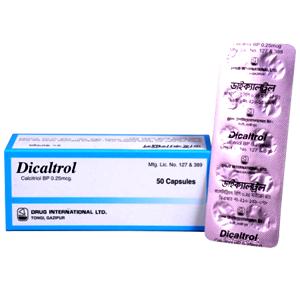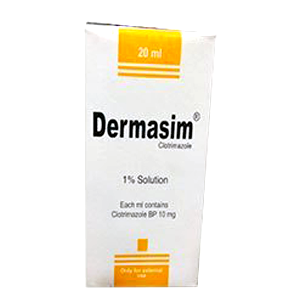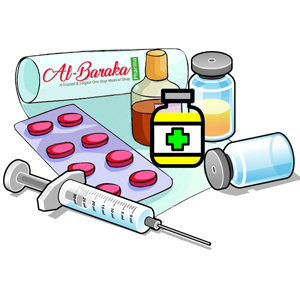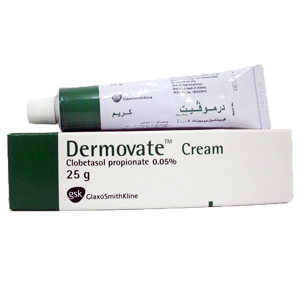৳ 10.00
Dicaltrol Capsule 0.25 mcg
Intravenous: Hypocalcaemia: For patients undergoing chronic renal dialysis: 1 mcg (0.02 mcg/kg) to 2 mcg 3 times wkly, approx every other day. If no satisfactory response observed, increase by 0.5-1 mcg at 2-4 wk intervals. Individualise and commensurate incremental dosing with PTH, serum Ca and phosphorus levels.
Oral: Postmenopausal osteoporosis: 0.25 mcg bid.
Oral: Renal osteodystrophy: For correction of Ca and phosphorus metabolism abnormalities: Initially, 0.25 mcg daily. Patient with normal or slightly reduced Ca levels: 0.25 mcg every other day. If no response w/in 2-4 wk, increase daily dose by 0.25 mcg at 2-4 wk intervals. Immediately stop treatment if serum Ca levels rise to 1 mg/100 mL (250 μmol/L) above normal (9-11 mg/100 mL or 2,250-2,750 μmol/L), or serum creatinine rises to >120 μmol/L.
Description
Dicaltrol Capsule 0.25 mcg
Intravenous: Hypocalcaemia: For patients undergoing chronic renal dialysis: 1 mcg (0.02 mcg/kg) to 2 mcg 3 times wkly, approx every other day. If no satisfactory response observed, increase by 0.5-1 mcg at 2-4 wk intervals. Individualise and commensurate incremental dosing with PTH, serum Ca and phosphorus levels.
Oral: Postmenopausal osteoporosis: 0.25 mcg bid.
Oral: Renal osteodystrophy: For correction of Ca and phosphorus metabolism abnormalities: Initially, 0.25 mcg daily. Patient with normal or slightly reduced Ca levels: 0.25 mcg every other day. If no response w/in 2-4 wk, increase daily dose by 0.25 mcg at 2-4 wk intervals. Immediately stop treatment if serum Ca levels rise to 1 mg/100 mL (250 μmol/L) above normal (9-11 mg/100 mL or 2,250-2,750 μmol/L), or serum creatinine rises to >120 μmol/L.




